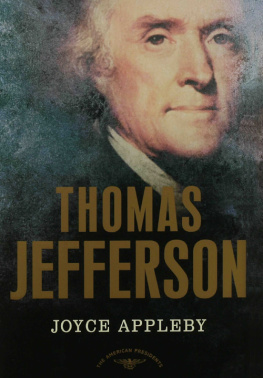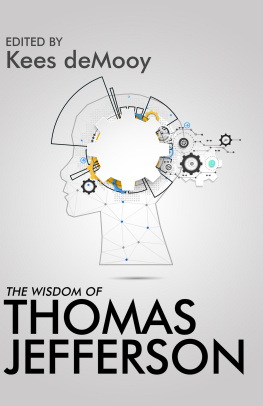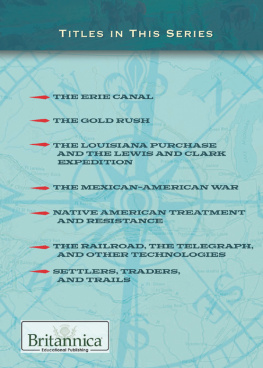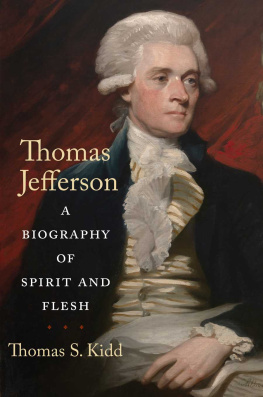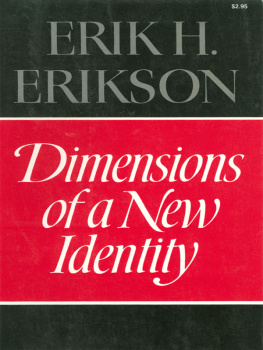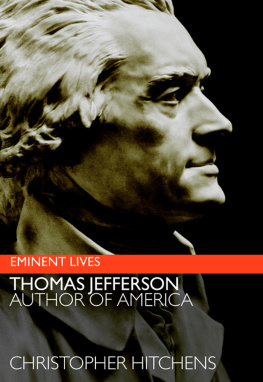THE AMERICAN PRESIDENTS SERIES
Joyce Appleby on Thomas Jefferson
Louis Auchincloss on Theodore Roosevelt
Jean H. Baker on James Buchanan
H. W. Brands on Woodrow Wilson
Alan Brinkley on John F. Kennedy
Douglas Brinkley on Gerald R. Ford
Josiah Bunting III on Ulysses S. Grant
James MacGregor Burns and Susan Dunn on George Washington
Charles W. Calhoun on Benjamin Harrison
Gail Collins on William Henry Harrison
Robert Dallek on Harry S. Truman
John W. Dean on Warren G. Harding
John Patrick Diggins on John Adams
Elizabeth Drew on Richard M. Nixon
John S. D. Eisenhower on Zachary Taylor
Annette Gordon-Reed on Andrew Johnson
Henry F. Graff on Grover Cleveland
David Greenberg on Calvin Coolidge
Gary Hart on James Monroe
Hendrik Hertzberg on Jimmy Carter
Roy Jenkins on Franklin Delano Roosevelt
Zachary Karabell on Chester Alan Arthur
Lewis H. Lapham on William Howard Taft
William E. Leuchtenburg on Herbert Hoover
Gary May on John Tyler
George S. McGovern on Abraham Lincoln
Timothy Naftali on George Bush
Charles Peters on Lyndon B. Johnson
Kevin Phillips on William McKinley
Robert V. Remini on John Quincy Adams
Ira Rutkow on James A. Garfield
John Seigenthaler on James K. Polk
Hans L. Trefousse on Rutherford B. Hayes
Tom Wicker on Dwight D. Eisenhower
Ted Widmer on Martin Van Buren
Sean Wilentz on Andrew Jackson
Garry Wills on James Madison
ALSO BY JOYCE APPLEBY
Inheriting the Revolution: The First Generation of Americans
Telling the Truth about History (with Lynn Hunt and Margaret Jacob)
Liberalism and Republicanism in the Historical Imagination
Capitalism and a New Social Order: The Republican Vision of the 1790s
Economic Thought and Ideology in Seventeenth-Century England
Jefferson: Political Writings (edited with Terence Ball)
Recollections of the Early Republic: Selected Autobiographies (editor)

Joyce Appleby
Thomas
Jefferson

THE AMERICAN PRESIDENTS
ARTHUR M. SCHLESINGER, JR., GENERAL EDITOR

The author and publisher have provided this e-book to you for your personal use only. You may not make this e-book publicly available in any way. Copyright infringement is against the law. If you believe the copy of this e-book you are reading infringes on the authors copyright, please notify the publisher at: us.macmillanusa.com/piracy.

Times Books
Henry Holt and Company, LLC
Publishers since 1866
175 Fifth Avenue
New York, New York 10010
www.henryholt.com
Henry Holt is a registered trademark of Henry Holt and Company LLC.
Copyright 2003 by Joyce Appleby
All rights reserved.
Distributed in Canada by H. B. Fenn and Company Ltd.
Frontispiece: Portrait of Thomas Jefferson by Asher Brown Durand
ca. 18161886 Bettman/CORBIS
LIBRARY OF CONGRESS CATALOGING-IN-PUBLICATION DATA
Appleby, Joyce Oldham.
Thomas Jefferson / Joyce Appleby; Arthur M. Schlesinger, general editor.
p. cm.(The American presidents)
Includes bibliographical references.
ISBN-13: 978-0-8050-6924-2
ISBN-10:0-8050-6924-0
1. Jefferson, Thomas, 17431826. 2. PresidentsUnited StatesBiography. 3. United StatesPolitics and government18011809. I. Schlesinger, Arthur Meier, 1917 II. Title. III. American presidents series (Times Books (Firm))
E332 .A67 2003
973.46092dc21
[B]
200203563
Henry Holt books are available for special promotions and premiums.
For details contact: Director, Special Markets.
First Edition 2003
Printed in the United States of America
5 7 9 10 8 6 4
FOR KAREN
who shares my love of history
Editors Note
THE AMERICAN PRESIDENCY
The president is the central player in the American political order. That would seem to contradict the intentions of the Founding Fathers. Remembering the horrid example of the British monarchy, they invented a separation of powers in order, as Justice Brandeis later put it, to preclude the exercise of arbitrary power. Accordingly, they divided the government into three allegedly equal and coordinate branchesthe executive, the legislative, and the judiciary.
But a system based on the tripartite separation of powers has an inherent tendency toward inertia and stalemate. One of the three branches must take the initiative if the system is to move. The executive branch alone is structurally capable of taking that initiative. The Founders must have sensed this when they accepted Alexander Hamiltons proposition in the Seventieth Federalist that energy in the executive is a leading character in the definition of good government. They thus envisaged a strong presidentbut within an equally strong system of constitutional accountability. (The term imperial presidency arose in the 1970s to describe the situation when the balance between power and accountability is upset in favor of the executive.)
The American system of self-government thus comes to focus in the presidencythe vital place of action in the system, as Woodrow Wilson put it. Henry Adams, himself the great-grandson and grandson of presidents as well as the most brilliant of American historians, said that the American president resembles the commander of a ship at sea. He must have a helm to grasp, a course to steer, a port to seek. The men in the White House (thus far only men, alas) in steering their chosen courses have shaped our destiny as a nation.
Biography offers an easy education in American history, rendering the past more human, more vivid, more intimate, more accessible, more connected to ourselves. Biography reminds us that presidents are not supermen. They are human beings too, worrying about decisions, attending to wives and children, juggling balls in the air, and putting on their pants one leg at a time. Indeed, as Emerson contended, There is properly no history; only biography.
Presidents serve us as inspirations, and they also serve us as warnings. They provide bad examples as well as good. The nation, the Supreme Court has said, has no right to expect that it will always have wise and humane rulers, sincerely attached to the principles of the Constitution. Wicked men, ambitious of power, with hatred of liberty and contempt of law, may fill the place once occupied by Washington and Lincoln.
The men in the White House express the ideal and the values, the frailties and the flaws, of the voters who send them there. It is altogether natural that we should want to know more about the virtues and the vices of the fellows we have elected to govern us. As we know more about them, we will know more about ourselves. The French political philosopher Joseph de Maistre said, Every nation has the government it deserves.

